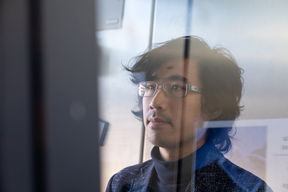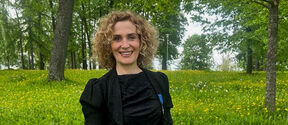Russell Lai is at the vanguard of cryptography

What is your research about?
I am broadly interested in both theoretical and applied aspects of cryptography, security, privacy, and their connections to other disciplines. I focus on constructing cryptographic schemes with advanced functionalities based on the computational hardness of algebraic problems, e.g., over groups and lattices.
What is going on in cryptography research now?
Cryptography has been experiencing an anomaly as a field of research. Rarely does cutting-edge scientific research go from theoretical academic papers straight to deployment in practice within mere months or even weeks. It used to be that only decades-old cryptographic systems were deployed. Today, for example, the cryptocurrency industry is eager to implement the newest results even if they are not well-understood nor stable yet.
Sometimes cryptographic systems are riskily thrown together without solid theoretical foundations. This happens when what is served by the academic community does not meet the requirements of practitioners.
How did you become an assistant professor?
My research career started in 2013, shortly before the final year of my bachelor study, when I worked on searchable encryption -- to encrypt data in such a way that it is possible to perform queries over encrypted data. Cryptography is one of the most mathy subjects one could do back then, and I had a math degree, so the choice was pretty natural if I wanted to apply math into something more concrete.
Although I started out in applied cryptography, later, I gradually broadened my research focus to also cover theoretical aspects of cryptography. As part of my master thesis, I worked on obfuscating computer programs in a succinct manner so that the runtime of the obfuscated program preserves that of the original.
At the early stage of my PhD study, I worked on password-hardening, which aims to enhance the security of widely deployed password-authentication mechanisms. Later, my research focus shifted towards succinct argument systems, which eventually became the topic of my dissertation. I was fascinated by the idea that, to convince others that a statement is true, it suffices to communicate a succinct proof which could be shorter than the statement itself.
My work on succinct arguments naturally led me to the area of anonymous cryptocurrencies. There, we are developing a theory of decoy sampling, which plays a major role in the concrete anonymity of anonymous cryptocurrencies.
How does your research influence society?
Seeing it as my mission to bring the fruits of cryptography to the public without compromising robustness, my research area lies between theoretical and applied cryptography. While my research covers diverse topics, a common theme is to solve practically motivated problems based on solid theoretical foundations.
Some concrete examples are my work on password-hardening, that has been integrated into identity management systems by the industry. Another one of my research projects on anonymous cryptocurrencies established theoretical foundations of the security of Monero – one of the most traded anonymous cryptocurrencies – and has influenced the development of other cryptocurrencies. Recently, I’ve been working in collaboration with Protocol Labs on post-quantum-secure succinct argument systems.
What things excite you, apart from research?
One of the things that I like to do in my free time is historical fencing. I have a background in iaido – a Japanese sword-based martial art – and have been training longsword fencing for a few years. Apart from being a fun sport, swordsmanship is also a way of life, associated with traits such as righteousness, bravery, and determination.
Read more news

How an Aalto alum uses data to help replace fossil fuels
Yuri Kroyan, an energy industry associate, develops advanced statistical models to describe and predict how the world can move away from fossil fuels.
Lotta Partanen moved from design to creating new business
Aalto University alum Lotta Partanen realized that she is more interested in new businesses than in furniture design. She has ended up building and leading VTT's Launchpad business incubator.
‘My entire career as a marine biologist and sustainability scientist has been extremely interesting’
Professor of Practice Eeva Furman has spent most of her career conducting interdisciplinary research in sustainability sciences






